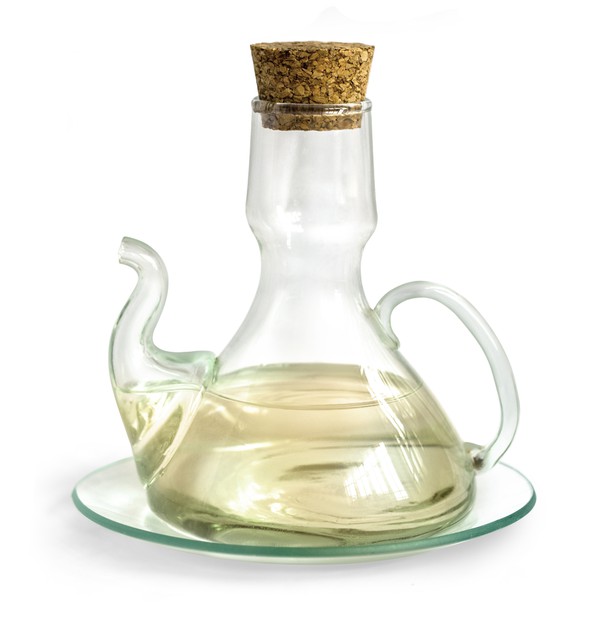Red wine is a popular alcoholic beverage mainly synthesized by crushing and fermenting dark colored grapes. Red wine is considered as one of the richest sources of powerful antioxidants. Consumption of red wine in moderation shows several health benefits especially exerts cardio protective effects.
Type
Red wine is of several types with different characteristics. Below table will show an overview of wine types and their characteristics
| Types | Characteristics |
| Syrah |
|
| Cabernet |
|
| Pinot noir |
|
| Merlot | Most soft wine |
| Barbera | It has same characteristics with merlot |
| Zinfandel | Most versatile variety of wine grapes |
| Malbec | This type of wine is blended with merlot and cabernet |
Nutritional profile
- It contains too some extent of carbohydrate and has very minimum glycemic load
- It does not contain any protein
- It is also free from fat
- It contains several vitamins like Vitamin A, Vitamin K, niacin and pyridoxine
- It also contains various trace elements such as calcium, phosphorus, iron, sodium, potassium, magnesium, selenium and fluoride
- It contains 12 to 15% of alcohol
- It contains anthocyanins (a pigment), which is responsible for the red coloration of wine
- It also contains various bioactive compounds, such as polyphenols, (which include flavanols, resveratrol flavonols), gallic acid, rutine, myricetin, cyaniding-3-glucoside, epigallocatechin, malvidin-3-glucoside, catequin, and quercetin
Health benefits
Role on heart

- The antioxidant property of red wine is related with reducing the concentration of bad cholesterol (LDL) that reduces the prevalence of fat accumulation within blood vessels (atherosclerosis) and improves cardiac health by promoting blood circulation
- It has seen that resveratrol of red wine is associated with activating sirtuin 1 (a protein), that protects the entire cardiovascular system from inflammation
- Resveratrol also reduces clot formation within blood vessels and protects the lining of the blood vessels from external injuries
- Consumption of red wine is related with reducing the prevalence of coronary artery diseases, blood pressures, strokes and myocardial infraction
Role on regulating blood cholesterol level
- The antioxidant and alcohol components of red wine help to increase the concentration of HDL within body
- As mentioned above resveratrol, an important polyphenolic compound of red wine also helps to reduce the level of LDL
- Red wine helps to decrease the concentration of trans fat within body as well
- It helps to regulate the lipid profile
Role on preventing diabetes
- Polyphenolic compounds of red wine especially resveratrol help to reduce glucose concentration within blood
- It mainly helps to reduce the susceptibility of type 2 diabetes and renal disorders
- It has seen that resveratrol helps to improve the health of diabetic artery that protects them from developing heart disease

Anti-carcinogenic activities
- It has seen that consumption of red wine in moderate amount helps to reduce the susceptibility of developing cancers
- The antioxidant property of red wine helps to suppress the growth of cancer cells by enhancing cellular apoptosis
- It is also accountable for destroying cancerous cell by crippling the function of mitochondria. Impaired mitochondrial function of cancerous cells interferes with cellular (cancerous cell) ATP production that results in cellular death
- It mainly helps to reduce the prevalence of ovarian, pancreatic, prostate and colon cancers

Role on weight management
- Red wine plays significant role on reducing body weight
- Resveratrol of red wine is converted into piceatannol that helps to inhibit fat cells growth within body
- It is associated with increasing fat oxidation that increases catabolic rate of the body and results in weight reduction
- It helps to prevent unnecessary fat storage within body
Role on bone health
- It promotes the synthesis of osteoblast (bone cell)
- It helps to increase the strength of bone
- It also enhances bone mass by increasing bone mineralization
- The anti-inflammatory activities of red wine are related with decreasing bone losses
- It has also seen that resveratrol of red wine helps to improve spinal bone density especially in men who suffer from metabolic syndromes

Role on digestive health
- Consumption of alcohol in lesser amount is related with enhancing digestive health
- It helps to prevent microbial infestation (especially H.pylori) within GI tract and prevents stomach irritation, ulcer formation, diarrhea and several gastrointestinal complications
Other benefits
- It helps to reduce anxiety, depression, insomnia and stress as it exerts a calming and sedative effect
- It helps to enhance blood flow within brain hence increases the functionality of nervous system and prevent neurological disorders especially Alzheimer’s disease, Parkinson’s disease
- It helps to reduce the susceptibility of normal cold and cough
- It helps to improve longevity of life
- It helps to improve the health of skin and prevent ageing
- It also helps to promote hair growth
- It helps to reduce the prevalence of cataract
- It is associated with enhancing the level of omega 3 fatty acids in blood
- It helps to improve the functionality of lungs
- It is also related with strengthening immune system and protects the body from communicable and non-communicable diseases
Recommended dietary intake

- It is better for women to consume 1 to 1.5 glasses of red wine daily
- Recommendation for men is about 1 to 2 glasses per day
Recent finding
- Recent studies have shown that consumption of red wine in moderate amount helps to reduce the susceptibility of developing cancers. According to this study, polyphenolic compounds of wine especially resveratrol, catechin and quercetin have strong anti-carcinogenic activity that helps to inhibit the formation of malignant tumor in body. It is related with reducing about 30 to 40% risk of colorectal cancers (mainly) in both genders (Amor et al., 2018)
- Recent research has shown that red wine is associated with increasing the α-diversity of gut microbes. Alpha diversity of gut microbes is associated with enhancing gut health and makes the immune system stronger (Le Roy et al., 2020)
- Current studies and research have shown that polyphenols red wine is responsible for exerting antioxidant, anti-inflammatory, anti-carcinogenic and antimicrobial activities which are responsible for providing several health benefits. According to this research, it has seen that starter culture of yeast (Saccharomyces cerevisiae) enhances the polyphenolic contents of red wine and makes it comparatively healthier (Grieco et al., 2019)
Risk factors
- Consumption of red wine in small amount is safe but its excessive consumption is not good for health as it may develop changing in mood, seizures, diarrhea, vomiting and black out
- Prolong consumption of excessive red wine is very much harmful for health as it causes mental disturbances, cardiac problems, development of certain type of cancers, liver complications and pancreatic problems
- Pregnant and lactating women should avoid the consumption of red wine
- Patient who suffer from asthma, severe hepatic disorders, neurological disturbances, gastric problems, pancreatic complications, insomnia, severe hypertension and gout should avoid red wine


Source:
Amor, S., Châlons, P., Aires, V. and Delmas, D., 2018. Polyphenol extracts from red wine and grapevine: Potential effects on cancers. Diseases, 6(4), p.106.
Castaldo, L., Narváez, A., Izzo, L., Graziani, G., Gaspari, A., Di Minno, G. and Ritieni, A., 2019. Red wine consumption and cardiovascular health. Molecules, 24(19), p.3626.
Golan, R., Gepner, Y. and Shai, I., 2019. Wine and Health–New Evidence. European journal of clinical nutrition, 72(1), pp.55-59.
Grieco, F., Carluccio, M.A. and Giovinazzo, G., 2019. Autochthonous Saccharomyces cerevisiae starter cultures enhance polyphenols content, antioxidant activity, and anti-inflammatory response of Apulian red wines. Foods, 8(10), p.453.
Le Roy, C.I., Wells, P.M., Si, J., Raes, J., Bell, J.T. and Spector, T.D., 2020. Red wine consumption associated with increased gut microbiota α-diversity in 3 independent cohorts. Gastroenterology, 158(1), pp.270-272.
Liberale, L., Bonaventura, A., Montecucco, F., Dallegri, F. and Carbone, F., 2019. Impact of red wine consumption on cardiovascular health. Current medicinal chemistry, 26(19), pp.3542-3566.
Snopek, L., Mlcek, J., Sochorova, L., Baron, M., Hlavacova, I., Jurikova, T., Kizek, R., Sedlackova, E. and Sochor, J., 2018. Contribution of red wine consumption to human health protection. Molecules, 23(7), p.1684.
Wurz, D.A., 2019. Wine and health: A review of its benefits to human health. In BIO Web of Conferences (Vol. 12, p. 04001). EDP Sciences.



